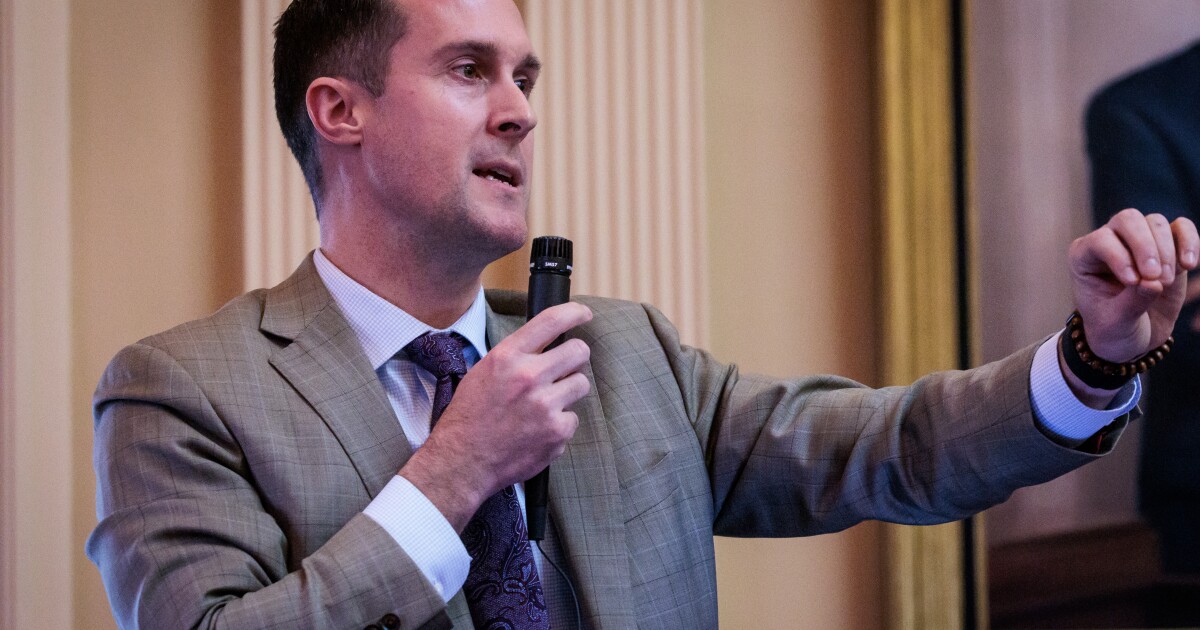
On a make-or-break day for campaign finance bills, both the Virginia House and Senate advanced proposals. It enables legislation to head to the other chamber, where the bills will again have to be approved in order to make it to Gov. Glenn Youngkin’s desk.
The bills passing Tuesday included those restricting campaign funds from being used for personal use, allowing localities to explore publicly financing elections and two requiring disclosures on AI generated content.
“We’re seeing some progress, and it’s incremental. It feels like baby steps on a lot of the stuff,” said Del. Marcus Simon (D–Fairfax), who has proposed limits on the use of campaign funds for several years. “That’s generally how we do things here in Virginia, for better or for worse, right? We tend to avoid massive changes all at once.”
This year, House legislation by Dels. Joshua Cole (D–Stafford) and Kelly Convirs-Fowler (D–Virginia Beach) passed that would restrict personal use of campaign funds. A Senate version of the bill sponsored by Sen. Jennifer Boysko (D–Fairfax) was also approved.
Two “synthetic media” bills, introduced by Del. Mark Sickles (D–Alexandria) and Sen. Scott Surovell (D-Fairfax) were not the result of coordination between the two chambers, Surovell said.
“The idea is to make sure that our elections are safe, that people are seeing words coming out of politicians’ mouths that actually came out of their mouths,” said Surovell.
Disagreements within caucuses and between chambers were on display Tuesday as senators debated their version of the AI bill, a reminder that the chambers will have to reconcile any differences on campaign finance reform.
“It’s a real problem we need to address before the next election,” said Surovell of AI content in election ads.
“I have a lot of angst about the idea that somebody who’s just goofing around and does something could get a class-one misdemeanor when it’s speech related,” said Sen. Schuyler Van Valkenburg (D-Henrico), discussing a concern that the bill’s exemptions for comedy or parody were not sufficient. “My satire is not your satire, and your satire is not my satire.”
On the other side of the aisle, Sen. Richard Stuart (R-King George) expressed support for the bill, while Sen. Glen Sturtevant (R–Colonial Heights) expressed apprehension.
“If it’s just somebody’s grandmother or any private individual outside the context of a campaign,” he said. “But just a private citizen who’s on social media and sharing one of these videos that doesn’t have a disclaimer, are we under the bill?”
Speaking to reporters after the House adjourned Tuesday, Speaker Don Scott (D-Portsmouth) said his chamber would make sure to ban the personal use of campaign funds.
“We’re going to get through that,” said Scott. “Then we have some other ideas around looking at some of the outside spending and dark money.”
Both the House and Senate are able to amend the other chamber’s bills, and more campaign finance reform could come in through budget language.
One Republican, Del. Baxter Ennis (R-Chesapeake), joined Democrats to pass a bill from Simon that would allow localities to establish public financing for local offices.
“In some ways, they’ll be like little pilot programs all over the state. We can see what works and what doesn’t,” said Simon, who represents Falls Church, a small city with a seven-member city council.
“You can knock on almost every household there. So, it doesn’t require huge amounts of money, but the money you raise, it’s often from developers or people that have an interest in zoning and things like that.”
Whether the Senate or House will consider passing a version of campaign finance laws that its legislators have already killed, or never considered, is up in the air.
A House bill, approved 96–0, would create a database for campaign finance disclosure reports; it’s already making its way through the Senate.
But it’s unclear whether a Senate bill commissioning a JLARC study on Virginia’s campaign finance laws will succeed.
That bill was triggered by revelations that a Richmond City Council candidate faked campaign donations. But a House bill was never docketed, and Scott said it was unnecessary.
“Do you really need a bill for it? He got caught,” said Scott. “They made a call, one phone call, and it exposed it. So, we have the transparency that we need there.”
